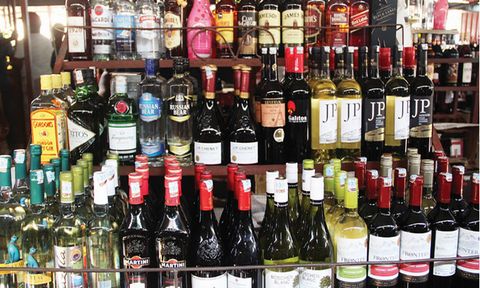Comunicação - Imprensa
Mozambique: Despite fiscal stamps, alcoholic drinks still evade tax

Despite the introduction of fiscal stamps in 2017, huge quantities of wines and spirits continue to enter Mozambique without paying any tax, according to a study undertaken by the anti-corruption NGO, the Centre for Public Integrity (CIP).
Speaking at a Maputo press conference on Tuesday, CIP researcher Borges Nhamirre estimated that, over the past three years, this smuggling has cost the state 62.7 million US dollars. He believed that only ten per cent of the drinks entering the country are taxed.
The use of fiscal stamps to seal bottles of wines and spirits has been compromised, Nhamirre claimed, because the stamps themselves are also being sold on the informal market.
According to the CIP research, corrupt customs staff are implicated in this scam, as are some workers of the British company OPSEC, which was hired to produce the fiscal stamps. The deal under which OPEC produces the stamps is valid for 15 years.
The proof of this, Nhamirre argues, is the drastic decline in the number of fiscal stamps sold by the Mozambican customs service to the producers and importers of wines and spirits. In the first year, 2017, the producers and importers purchased 44 million fiscal stamps. This figure dropped to 28 million in 2018 and to 21 million in 2019.
But there was no accompanying decline in the amount of alcoholic drinks on sale. The bottles are continuing to enter Mozambique, but they are sealed (if at all) with contraband stamps.
“Those who smuggle the drinks have also managed to smuggle the stamps”, said Nhamirre. “So the entire reform is annulled as long as the stamps remain on sale on the informal market. The smuggler brings in the drinks, buys the stamps and puts them on the bottles. The police can’t arrest him because the stamps are authentic”.
Nhamirre advised the Mozambique Tax Authority (AT) to work with the OPSEC factory producing the stamps, in order to identify the illicit channels whereby they leave the factory and end up in the hands of the smugglers.
Nhamirre believed that, if the fiscal stamps were used correctly, they would raise enough money to allow the Mozambican state to reduce other taxes. It would, for instance, become possible to reduce Value Added Tax (VAT) from the current 17 per cent to 14 per cent.
If the AT did not act, he warned, revenue would continue to fall, “and the formal sector importers will feel discouraged to purchase the stamps legally, because they know that those who obtain the stamps on the informal market are not paying any taxes at all”.

